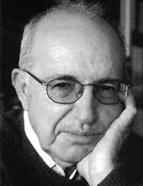

Through his work, the working classes, the marginalised, and the persecuted are transformed into collective social actors. The Marxist influence in this perspective is evident, not only in his political and ideological stance but also because it led to his imprisonment. However, his approach aligns more with major social and political issues, as if seeking relative autonomy from an economic history typically associated with a rigidly deterministic Marxism, which has limited presence in Portuguese historiography. While António Borges Coelho acknowledges the significant influence of Marxism, he does not consider himself a Marxist historian and rejects this label, finding it both excessive and often prejudiced. Being a Marxist, he recognises and incorporates the significance and impact of Marx's work, particularly for the conceptual tools it provides. These tools have been instrumental in deepening the study of history and the other social sciences, and in opening up new areas of knowledge. He chooses to challenge the restrictive nature of economic determinism by emphasising broad social and human frameworks, where individuals, in their diversity, are the true architects of historical change. In this sense, he has always been attuned to the dialogue between Marxism and schools of thought such as the Annales, which aimed to renew the study of history from a global perspective, seeking to cover every aspect of analysis and foster continuous interaction between different levels and forms of social integration.
The rigour he applies to his work as a historian leads him to broaden the concept of historical sources, seeking clarity and vividness in the narratives he constructs by cross-referencing documents from various sources. Much of his evident fascination with Fernão Lopes stems from this approach, as he argued in his controversial analysis of the Revolution of 1383, and it also reflects his deep respect for Alexandre Herculano.
